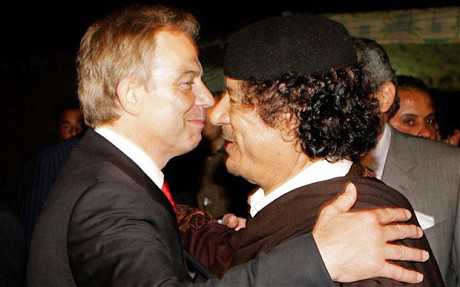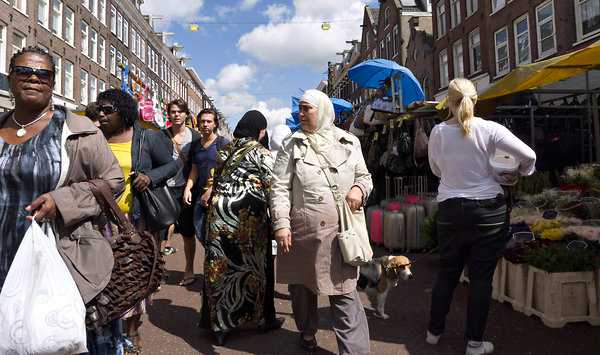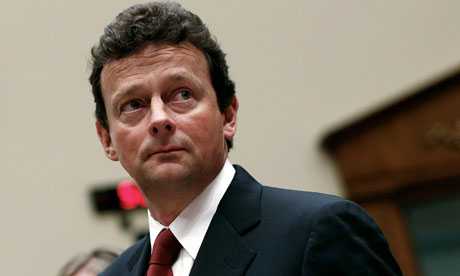This confusion of motive and identity follows Mr Blair almost everywhere he goes, as we found when researching our forthcoming Channel 4 Dispatches film, The Wonderful World of Tony Blair.
Let’s take the example of Mr Blair’s visit to the Emir of Kuwait, part of a wider Middle Eastern tour, made on January 26, 2009. He was introduced to the Emir – who is said to feel a profound sense of gratitude to the former British prime minister because of his role in deposing Kuwait’s greatest enemy, Saddam Hussein – in his capacity of Quartet Representative. And, indeed, Blair is charged by the Quartet with raising Middle Eastern funds to plough into Palestinian projects.
Yet, puzzlingly, by his side was a figure who has nothing to do with the Quartet whatever: Jonathan Powell. Mr Powell, who used to be Downing Street Chief of Staff when Mr Blair was prime minister, today has a new role as senior adviser to Tony Blair Associates, the vehicle through which Mr Blair channels many of his money-earning interests. Mr Powell was perched on a sofa during the meeting.
Shortly afterwards, the Emir handed Tony Blair Associates a lucrative consultancy deal to provide advice on the future of the Kuwaiti economy. Nobody knows how much this deal – which was kept secret for two years – is worth. Because the TBA contract was handled by the Emir’s personal office, it is exempt from scrutiny by Kuwait’s normally rigorous financial regulatory body.
Few Kuwaitis are prepared to speak out publicly, because it is illegal to criticise the Emir. But Nasser Al Abolly, a leading Kuwaiti pro-democracy campaigner, said he had heard from good sources that Mr Blair had been paid 12 million dinars, about £27 million. “I believe this amount is exorbitant,” Abolly told us, adding that much of Blair’s eventual report was not original and had come up with many of the same recommendations as earlier reports on the future of Kuwait – an observation echoed by other Kuwaiti politicians. A spokesman for Mr Blair insists that the sum involved was far less than £27 million, though declined to say how much TBA had been paid.
Mr Blair’s job as representative for the Quartet – the international diplomatic group that represents the US, Russia, the United Nations and Europe in their common attempt to forge peace in the Middle East – is riddled with this type of very troubling ambiguity.
Let’s take the example of the deal trumpeted by Mr Blair as one of his greatest achievements in his role as Quartet Representative – his success in persuading the Israeli government to open up radio frequencies so that the phone company Wataniya Mobile can operate in the West Bank.
Wataniya Mobile’s chief executive officer Bassam Hanoun cannot praise Mr Blair too highly. He told us that the Wataniya network had been built, “but it was dead, not operational” – until Mr Blair’s forceful intervention with Israeli ministers.
Yet Wataniya’s owner, the Qatari telecoms giant QTEL, is a major client of one of the former prime minister’s most significant paymasters, JP Morgan. When QTEL bought Wataniya Mobile’s parent company, Wataniya International, in 2007, the company did so with a $2 billion loan that JP Morgan helped to arrange, and the bank stood to make huge profits once the radio frequencies were released.
A near identical conflict involves a second major Palestinian project for which Mr Blair is lobbying heavily – the development of a huge gas field off the shore of Gaza worth more than $6 billion. Once again, he is fighting to overturn an Israeli edict blocking development, and again there is a potential conflict of interest. British Gas, which owns the rights to operate the field, is a major client of, yes, you guessed it, JP Morgan.
JP Morgan insists it has never discussed either the Wataniya or the British Gas deal with Mr Blair – while the former prime minister insists that in both cases he was, in any case, wholly unaware of the JP Morgan connection.
Nevertheless, the conflict is glaring – and Mr Blair would be unable to get away with this kind of confusion if he were a public servant in Britain, or working for an international organisation such as the World Bank or the IMF.
Dr Nicholas Allen, a senior politics lecturer at the University of London, specialising in parliamentary ethics, told us: “It is not altogether clear that Blair is separating very clearly his work as the representative of the Quartet and his business interests. Clearly, if he was holding a ministerial office in Britain, that kind of conflict – even the appearance of that kind of conflict, the appearance of that influence – wouldn’t be tolerated.”
Dr Allen says that no fewer than six out of seven of the Nolan principles – the code of ethics for public servants enforced by Mr Blair when he was prime minister – “appear to be undermined by Blair’s conduct”.
This immunity from ordinary standards comes despite the fact that Mr Blair is partly funded by the British taxpayer and gets the support of British civil servants. It all sounds uncannily similar to the notorious so-called “sofa government” – the confusion of formal roles and identities in the run up to the Iraq invasion for which, as prime minister, Mr Blair was censured by the former cabinet secretary Lord Butler.
It must be acknowledged that Mr Blair does much philanthropic and public spirited work through his Africa governance initiative, his Faith Foundation, and also for the Quartet (even though we found very few Palestinians who were prepared to speak well of him). However, these admirable objectives have been compromised and tarnished by his apparent drive to make money.
The Quartet cannot occupy more than one week a month of Blair’s schedule, perhaps less. He has earned a reported £6 million – though some in the City insist the real figure may be much higher – from JP Morgan since his consultancy started in 2008. Add in an estimated £1.5 million from advising the insurance group Zurich Financial services on its climate initiative.
He has advised Mubadala, one of Abu Dhabi’s most prominent sovereign wealth funds, and the luxury goods concern LVMH. In the television programme, we calculate that the Blair family property portfolio alone – with seven houses ranging from his manor house in Buckinghamshire to his London house in Connaught Square – is worth over £14 million. And then comes a further reported £9 million or more from speeches.
It is impossible to tell how much Tony Blair Inc is worth exactly because his finances are carefully hidden behind complex financial structures. Mr Blair himself is on record as saying that he is worth “considerably less” than £20 million. There is some reason to be sceptical of this claim.
Mr Blair insists that his conduct since stepping down as prime minister has been honourable, above board and beyond reproach. But this much can surely be said: when Blair joined the Quartet, he was handed a priceless opportunity to earn a place in history by making a genuine commitment to world peace. He has made some progress. Yet he seems to treat his post as envoy for the Quartet as a part-time post, by allowing his private commercial interests to merge with his public duty. And – as ever – the old maestro is getting away with it.
Additional reporting by Sasha Joelle Achilli. Watch Peter Oborne reporting for ‘Dispatches: The Wonderful World of Tony Blair’ on Monday at 8pm on Channel 4.
www.telegraph.co.uk, 23 Sep 2011
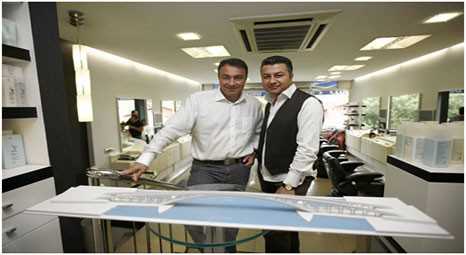

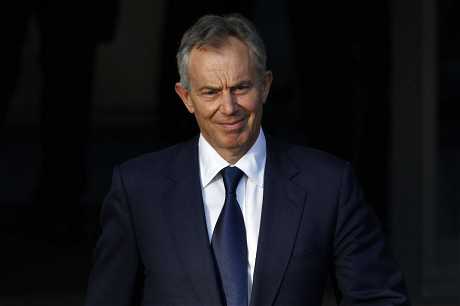
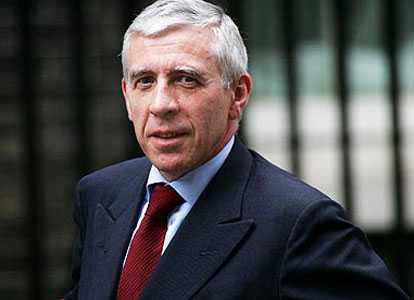
 Israel should have apologized to Turkey for its deadly raid on the Mavi Marmara aid ship, but instead allowed relations to deteriorate, according to United Kingdom’s former Foreign Secretary Jack Straw.
Israel should have apologized to Turkey for its deadly raid on the Mavi Marmara aid ship, but instead allowed relations to deteriorate, according to United Kingdom’s former Foreign Secretary Jack Straw.